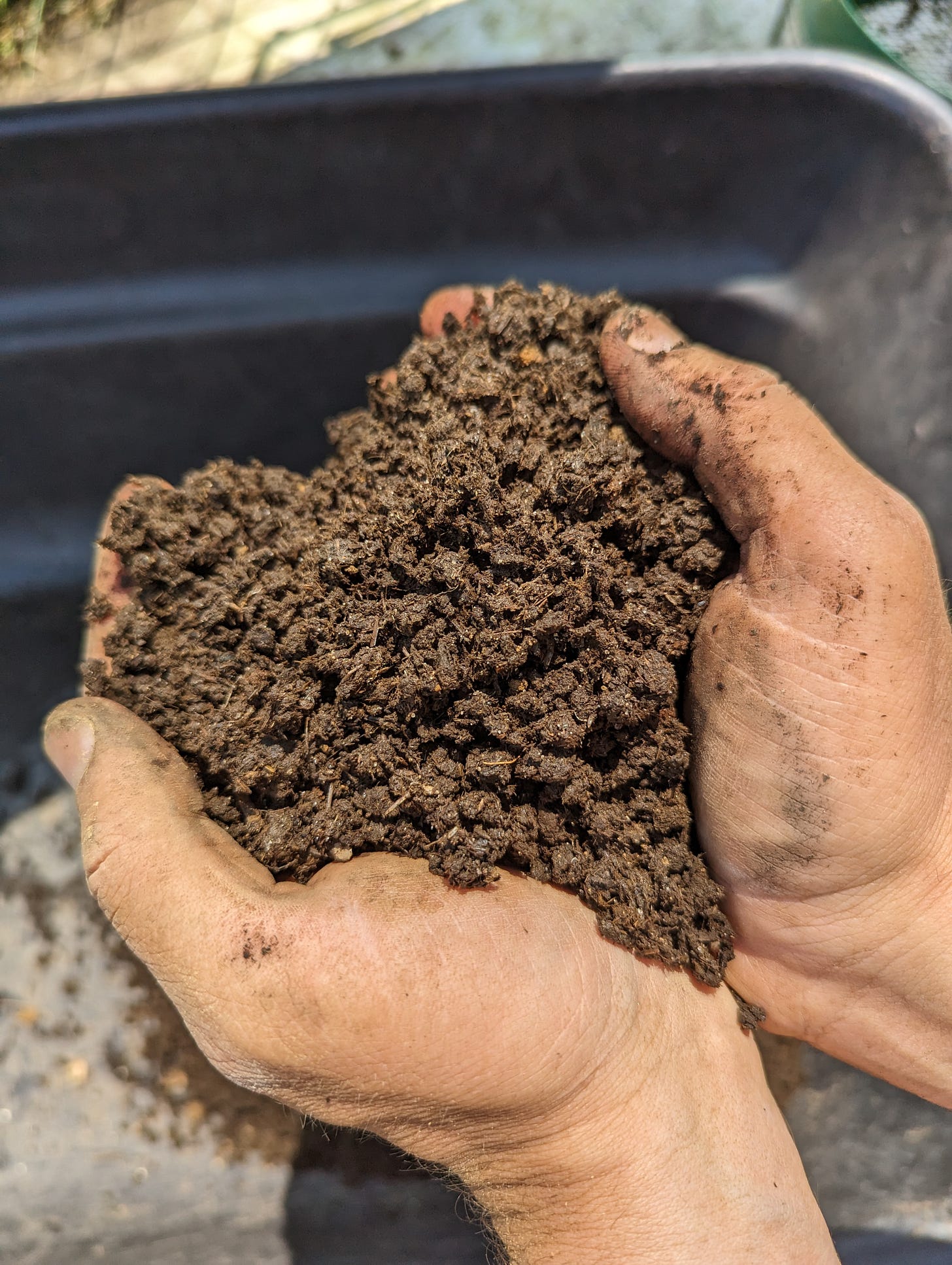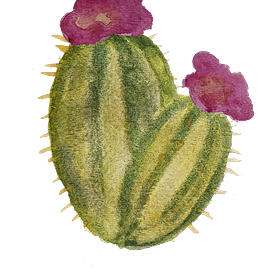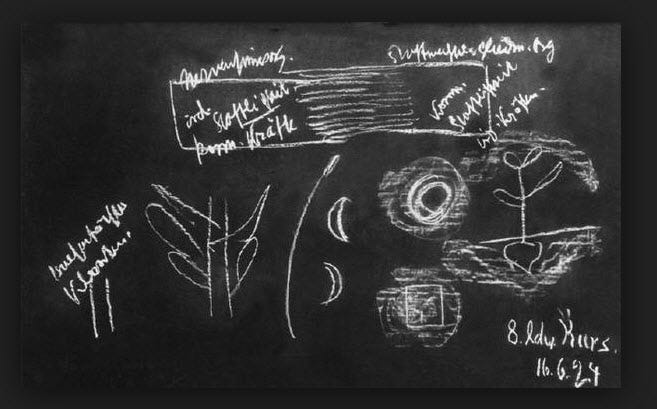The Human Being as a Preparation for a Sick Society
in the age of collapse, decay, and ignorance
In this contentious political season, it can be difficult to see the point of biodynamic agriculture when our society is dominated by shallow, materialistic thinking. When a materialist looks for a solution, they seek a cure by blaming the symptoms rather than asking, “Why?” repeatedly and addressing the root cause. The last thing that happened is not the first cause but the final result of long chains of misguided action. Rudolf Steiner himself criticized the “centralized” attitude — as in Moscow Center — that overran his Anthroposophical Society. “[W]e should avoid the mistakes which only became evident during the years when from the central anthroposophical work—if I may so describe it—we went on to other work which lay more at the periphery.”1 The real spiritual work happens on the edges — the interstices, if you will. In your own body, which specific parts of you directly participate in self-consciousness? Which are indispensable? Most of it is necessary for a vibrant life, but one would gladly sacrifice a foot before one’s head. “From the beginning, therefore, we shall need most active fellow-workers—no mere executive organs.”2 It is not enough to tell other cells what to do, but to allow each cell to perform its tasks freely. Unfortunately, by definition unfree people do not know how to let others be free. “The opposition between the individual and the generic also produces a useful way to counter the standard fear that individualism creates anarchy.”3 Of course, letting a liver be a liver and a kidney be a kidney is the height of order, but this kind of ecological thinking is impossible for sclerotic prejudices — it sees only “anarchy” in a healthy living system and trusts only what is dead, settled, and in the past. Similarly, when one cell is cancerous, a healthy organism instinctively knows to starve it of resources for the sake of the living whole, not because any organ wishes to tell any other organ what to do but because the consensus of all the organs confirms that the tumor should not issue edicts about how the healthy organs should function. One cannot expect a cancerous growth to regulate itself properly or maintain the right relationships with its environment. But enough about colonialism.
The ecological destruction we are witnessing is not the result of children born in the 21st century but a culmination of an entire society with deadened hearts over generations. Such people cannot conceive of a good solution to heal our Earth because they seek a single reductive answer. It is as if our society plays a “solved” game like checkers when living ecologies are more like a game of Go, in which there are more possible games from beginning to end than there are atoms in the observable universe. “Checkers” thinking will not save us, but “Go” thinking might.

Eric Sevareid famously said, “The greatest intellectual discovery of this generation is that the real cause of problems is solutions.” The kind of thinking that got us into this mess is not the kind of thinking that can get us out of this mess. As permaculturist Bill Mollison liked to say, “The problem is the solution.” The top-down domineering mindset shorn from any appreciation of ecological thinking has nearly ruined our planet. As the Hermetic maxim goes, “As above, so below, as within, so without.” We see the same wanton destruction of living ecologies and vibrant indigenous languages, not necessarily out of malice but out of negligence or stupidity. But there is no substantive difference. If someone is killed out of cold-blooded murder or unintentional manslaughter, only the degree of culpability changes. The same harm is perpetrated. Such people are only at war against the environment because they are at war with their own souls. It is not enough to regenerate the soil. The efficiency offered by nutrient-dense food is pointless if it only fuels further agitation and militant attitudes. The “soul” — our living conscious subjective experience and its attendant patterns — is where real change must be effected. It does us no good if a body is made healthier, but it belongs to a bad person any more than a more accurate weapon “improves” a villain. The seat of consciousness is where the real changes must be made, and these are not merely nutritive dilemmas. Yes, nutrition is a boon to the right person, but to the wrong person, it makes them more efficient at sowing discord. Consider how many initiates, yogis, and monks eat very little yet are very effective individuals. Edgar Cayce, like Steiner, had skeptical things to say about potatoes having a deleterious effect on consciousness. One day, someone saw Cayce eating a potato and remarked on it. Cayce replied, if he couldn’t raise the vibration of a potato by now, what good was he?
People can’t see what they can’t see, and there’s no sense arguing with a colorblind person about the experience of colors. In a society in which the blind lead the blind, it should not be surprising we are being led off a cliff. This ecologically aberrant mode of thinking ignores the living interstitial relationships, which are more important than various command-and-control centers. Albert Einstein says, “We can't solve problems by using the same kind of thinking we used when we created them.” Unfortunately, as Steiner informed Ehrenfriend Pfeiffer, the lack of spiritual development in our age is, at least in part, due to the poverty of our food. “This is a problem of nutrition. Nutrition, as it is today, does not supply the strength necessary for manifesting the spirit in physical life. A bridge can no longer be built from thinking to will and action. Food plants no longer contain the forces people need for this.”4 But everything we take in through experience is a kind of food for our souls — whether junk food or something more refined. But where is biodynamic food widely available? Who has grown up with such food? Where are the new initiates it should help produce? While biodynamics promises to restore vitality to the soil and presumably to the people who eat from it, there is no amount of imported vitality in a body that will heal a sick soul.
It’s hard to argue against the idea that our institutions and infrastructure are crumbling. Whether this is ultimately good or bad, does our universe have a moral arc at all? These are the questions we ask ourselves as the world burns around us. In the meantime, such disintegration is the cause of inordinate suffering in populations who do not deserve it. But those with power often ignore those who most need to be heard. So what are we to do? Many of us live ordinary lives and work ordinary jobs — even in institutions that are obviously falling apart. What is our purpose in such decay? How can we stop the disintegration? We can’t. But the good news? We don’t have to.
Beyond Biodynamics: Renewing the Doctrine of Signatures
“Anything will give up its secrets if you love it enough. Not only have I found that when I talk to the little flower or to the little peanut they will give up their secrets, but I have found that when I silently commune with people they give up their secrets also – if you love them enough.” - George Washington Carver in
We are living in the materialistic fallout of the spiritual dark age of the Kali Yuga. Yes, this materialistic impulse has run out of fuel, just as our planet is nearly out of fossil fuels, but now the tentacles of triumphalist economics and dictatorial policies have come to a head. Now, things are worse than in the golden age of materialism because the vanguard of a lost time is witnessing a progressive disintegration of the only thing they know how to value: centralized power. In his stimulating work The Mass Psychology of Fascism, Wilhelm Reich shows how whenever there is a revolution, the masses who have only ever known top-down authoritarian power invariably become the same kind of power — or, worse, reinstitute the ousted dictator. There is no successful revolution without there being, first and foremost, an inner spiritual revolution. Who are you in this catastrophe?
Consider a compost pile. An enormous amount of materials that once had living form are piled together: manure, rotten fruit, offal, and weeds. In the compost pile, a staggering disintegration occurs. This is what we are living through now: the disintegration of the forms of the “summer” of materialism. Not only can we not stop such deterioration, we shouldn’t. This doesn’t mean we should accelerate the widespread corruption spread by calcified thinking. No, it is not our task to “accelerate” or to oppose the dissolution of once-thriving forms. It is our task, instead, to guide the decomposition gently so that the fallout leaves behind rich, beautiful compost and not a sour, stinking mess.
In biodynamics, we collect medicinal herbs and concentrate their forces in isolation from each other: yarrow, chamomile, stinging nettle, oak bark, and dandelion specifically. Without this withdrawal into concentration, the preparations have nothing to offer the compost. Why? As knowledge flows from guru to student, all energy flows from high concentration to low concentration, just as the sun moves to the earth. Without our own disciplined withdrawal from the world of sensuality, we have little to offer but more agitation. “But he withdrew to the wilderness and prayed.”5 It is not in dispersal that we accumulate power to help others but in detachment from sensual stimulation. When these concentrated forces are added to the compost pile, they diffuse through the entirety of the rotting materials and provide a salutary effect born out of their contemplative withdrawal into concentration. “[I]nstinctively a peasant is given to meditation. He ponders much throughout the long winter nights. He acquires a kind of spiritual knowledge, as it were, only he cannot express it. He walks through his fields and suddenly he knows something; later he tries it out.”6 This happens because the farmer withdraws in winter from the outer world, driven by nature inward. Of course, quite the opposite happens if we preoccupy ourselves with TV shows in winter — it might as well be summer year-round, drawn out into the kaleidoscopic display of the panopticon. “If we consider mere perception alone, we do not have reality, only disconnected chaos.”7 As one of my favorite lines from Steiner’s Calendar of the Soul says, “Winter will arouse in me / The summer of the soul.” By contrast, we have been living in the Kali Yuga, the winter of the soul, in which society’s identity has become almost entirely enmeshed in the idea that I am only my body and how my body makes me feel — with no sensitivity towards the karmic duty we have to all future generations.
The developed human being — which, admittedly, is a relatively rare thing — is “like sympathetic people in human society, who have a favourable influence by their mere presence and not by anything they say, so yarrow, in a district where it is plentiful, works beneficially by its mere presence.”8 In a time where many (if not most) are dominated by the decadent habits of materialism, it is these rare souls who help slow the decomposition just enough that what is produced is compost. Rather than overheating and off-gassing or collapsing and going anaerobic, it is the task of these “sympathetic people” to be the preparations in a mass of decrepit materialism. Even Steiner said that it isn’t our task to heal the Earth but rather to slow its dying. A plant that dies before seeds have fully formed is unable to reproduce. It is our task to give of our own vitality so that the living impulse continues long enough that true seeds are formed as the mother plant dies.
This is our task: to be present in the midst of parasites, viruses, rot, decay, and stink. By our mere presence, we can mitigate the inevitable collapse — not that the disintegration of the compost pile should be stopped; to do so would mean no compost! We are not trying to preserve the decadent forms that no longer belong to our time but to help them dissolve auspiciously and in a beautiful way. It is not our task to remain separate from the collapse nor to stop it, but to be the human preparations in the compost pile of society, guiding its transformation into beautiful colloidal humus to serve not ourselves but the future. May we leave behind something fertile for the future, not just outlines of our own fragile egos.
What We Are Reading
If you haven’t read Caretakers of the Cosmos by Gary Lachman, perhaps now’s the time.
Lachman (former bassist for the band Blondie) brings together many strands of esoteric, spiritual and philosophical thought to form a counter-argument to the nihilism that permeates the twenty-first century. Offering a radical alternative to postmodern apathy, he argues that we humans are the caretakers of the universe, entrusted with a daunting task: that of healing and repairing creation itself.
This is an important book from a key thinker of our time. It addresses some of the most urgent questions facing humanity. Get it now.
What’s Happening
Whether you’re new to biodynamics or a veteran, you would enjoy our co-hosted study group, the Agriculture Course with Spikenard Honeybee Sanctuary. Sign up now.
From the Archives
Even Better Compost
It’s June. Plants are growing tall -- and so are the weeds. There can be the temptation to pull the weeds and drop them in the paths, letting them dry out in the sun. But there is a much more profitable use for these: to collect these precious weeds and add them to our
R. Steiner, Address, Agriculture Course, (GA327, 11 June 1924, Koberwitz)
R. Steiner, Agriculture Course (GA327, 11 June 1924, Koberwitz)
R. Steiner, Intuitive Thinking as a Spiritual Path
https://rsarchive.org/Lectures/GA327/English/BDA1958/Ag1958_preface.html
Luke 5:16
R. Steiner, Agriculture, Lecture III (GA327, 11 June 1924, Koberwitz)
R. Steiner, Intuitive Thinking as a Spiritual Path
R. Steiner, Agriculture, Lecture V (GA327, 13 June, 1924 Koberwitz)










A great piece which I have read a couple of times and thank you. One observation from my perspective is that cancer cells are not rogue cells per se but un-dealt toxins expressed or put into our structured water within our cell (Gerald Polock) and pushed to the outer area of an organ to be dealt with. You cannot find these cells in the blood (Harold Hillman, Gilbert Ling) my understanding is they do not travel and so then as in Ayurveda and Chinese medicine an organ would represent the dis-ease or e-motion-energy in motion if not rebalanced continue to grow. So much we do not still understand about our bodies on so many levels. Love the bit about the potato.
Thank you very much - I needed to hear this rant tonite! My mycorrhizae are tingling.